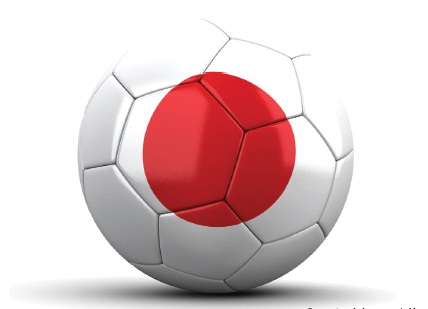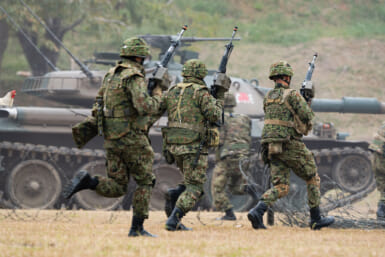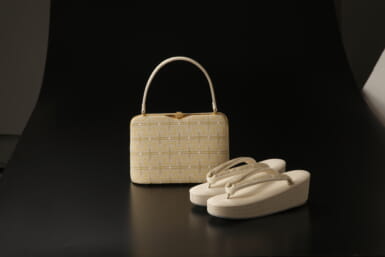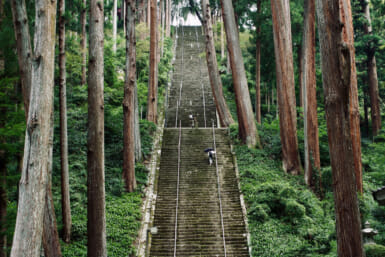Japanese Athletes Make Their Mark Overseas
by Benjamin Freeland
Japan has long suffered from a national inferiority complex in regards to it’s own athletes. Despite the country consistently putting forth solid showings in Olympic medal counts and building a solid reputation as a host country for major sporting events, Japan has nonetheless proven fiercely protective of its own sports heros, and until quite recently virtually no Japanese athletes had sought to establish themselves abroad. However, the past decade has seen remarkable change in this regard, propelled in large part by the groundbreaking exploits of Hidetoshi Nakata, Asia’s greatest footballer of a generation, and Ichiro Suzuki, arguably the greatest pure talent in baseball today. These days, expatriate Japanese athletes are more numerous than ever, and their presence is no longer restricted to sports in which Japan has a long tradition of excellence. From baseball and soccer to ice skating and even ice hockey, Japanese athletes are making their mark overseas in ever-increasing numbers.
While Japan has long possessed a vast pool of baseball talent and has repeatedly shown itself capable of besting the sport’s progenitor in international play, until the mid 1990s only one Japanese baseball player (Masanori Murakami, who pitched briefly for the San Francisco Giants in 1964–1965) had ever made the jump to the US major leagues; a stark contrast to the expatriate American ballplayers that began flooding into Japan in the late seventies. The first real challenge to the traditional cloistering of Japan’s baseball talent was the 1995 defection of Kintetsu Buffaloes star pitcher, Hideo Nomo, to the Los Angeles Dodgers, sparking a small trickle of Japanese players into American big league ball. However, it was Ichiro’s triumphant arrival in Seattle in 2001 and his astonishing subsequent success that triggered a veritable exodus of Japanese baseball talent to the MLB, one which has come to include premiere power hitter Hideki ‘Godzilla’ Matsui, who in 2003 left the Yomiuri Giants for America’s most storied ball club, the New York Yankees, and also fireballing pitcher Daisuke Matsuzaka, who made waves in late 2006 by signing a $52 million contract with the Yankees’ archrivals, the Boston Red Sox. While many Japanese fans worry about a hollowing out of their own country’s professional ranks, this veritable “Japanese invasion” of the MLB has bolstered the sport’s fan base in Japan and gone a long way to ridding the country of its athletic inferiority complex.
But while Japan’s baseball stars continue to dominate the country’s sporting press, Japanese footballers have slowly but surely established a firm foothold overseas and its national squad continues to fare well internationally. Introduced to Japan in the late 19th century and long popular among the youth, the beautiful game nevertheless long lagged behind the American national pastime in terms of fan base until the inauguration in 1993 of the Japan Professional Football League (known to all as the J-League) shot it to prominence. Two World Cup appearances later, including one as co-host with South Korea, Japan is now a footballing nation par excellence, and in a manner similar to Ichiro, Hidetoshi Nakata’s groundbreaking performance in European football which began in 1998 with the top-ranked Italian club Perugia, triggered an exodus of Japanese football talent. In contrast to the bipolar relationship between Japanese and American baseball, however, a more multilateral relationship has evolved between the J-League and professional football worldwide, with numerous Japanese stars, such as star goalkeeper Yoshikatsu Kawaguchi and midfielder Shinji Ono, migrating seamlessly between the J-League and European play. Currently atop the crop of expatriate Japanese footballers are midfielder Koji Nakata (the other Nakata), currently starring for FC Basel in the Swiss Super League, striker Naohiro Takahara, now in his sixth season in Germany’s Bundesliga, and Shunsuke Nakamura, star midfielder for Celtic in the Scottish Premier League and reigning Scottish PFA Players’ Player of the Year.
While Japan’s baseball and football stars continue to dominate the headlines, Japanese athletes have been quietly carving out niches for themselves overseas in other sports. In the elegant world of women’s figure skating, Japan has emerged as something of a powerhouse since Midori Ito captivated the world with her distinctive brand of powerful, energetic skating in the late eighties and early nineties. A number of subsequent leading lights in the sport, including 1994 world champion Yuka Sato and current teenage phenomenon Mao Asada, have chosen to base themselves abroad. Sato, currently a fan favorite on the Stars On Ice circuit, splits her time between Tokyo and Detroit, where she trains and coaches together with her husband, skater Jason Dungjen. Asada, currently ranked first in the world in women’s singles, resides in Los Angeles where she trains with legendary coach Rafael Arutunian, whose prestigious protégés include Michelle Kwan.
In a similarly icy realm, Hokkaido native Yutaka Fukufuji made history on January 13, 2007 when the 24-year-old goaltender laced up his skates for the Los Angeles Kings, thus becoming the first Japanese to play in the National Hockey League. Following in the footsteps of Hiroyuki Miura (drafted by Montreal in 1992 but never reaching the top level), Fukufuji has emerged as Japan’s premiere exponent of a sport that has long maintained a small but dedicated following in the country, and while currently relegated to the minor-league Bakersfield Condors (where he is a fan favorite), expectations for the still young Fukufuji remain high.
While Japanese athletes have clearly established themselves as a force to be reckoned with overseas, it remains to be seen whether Japan is truly shedding its athletic insecurity complex. In Japanese baseball, allegations persist that managers manipulate the game so that its most hallowed records are not broken by overseas players. According to Hideki Matsui, change is indeed underway. “In the past there has been more of that sort of unfairness, but it has been decreasing in the last couple of years,” asserts the Yankees slugger. Given the increasing success that Japanese athletes like himself are enjoying overseas, there ought to be no need for such favoritism.









